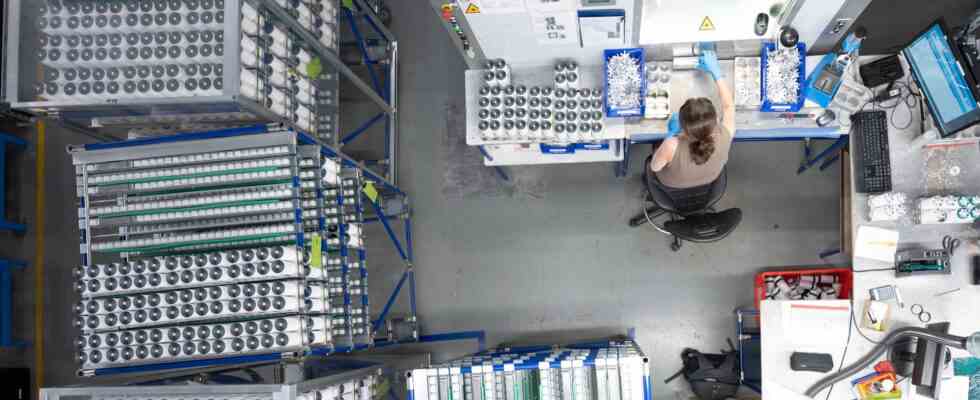Status: 11/21/2022 10:39 am
The German manufacturers surprisingly lowered their prices in October for the first time in two and a half years. Are these the first signs of a trend reversal in consumer prices as well?
In Germany, the rise in producer prices has weakened significantly. In October, producer prices rose by 34.5 percent year-on-year, the Federal Statistical Office announced today. In the previous month, the rate was much higher at 45.8 percent.
In a monthly comparison, however, producer prices fell by 4.2 percent. It was the first decline since May 2020, and experts had expected a further increase. In German wholesaling, too, the strong upward trend in prices had recently weakened significantly.
The relaxation that is currently being observed could ultimately also reach consumers, because producer prices are considered to be a precursor to the development of the cost of living.
“Spectacular price drop”
“A spectacular drop in prices after all those months of significant price increases,” said LBBW economist Jens-Oliver Niklasch. “Perhaps the first sign of some cyclical easing of price pressures.” Commerzbank economist Ralph Solveen also takes a similar perspective: Today’s numbers would certainly raise hopes that the peak in the inflation rate for consumer prices is not far off, says the expert.
However, according to Solveen, the inflation problem would still not be solved. “Because with the stronger increase in wages, companies are facing a further increase in costs, which they will at least partially pass on to their customers.”
Energy costs remain price drivers
Energy costs, which have risen since the beginning of the Russian invasion of Ukraine, remain the main reason for the still strong price increases at producer level despite the decline. Producer prices here were 85.6 percent higher than in October 2021. Light heating oil cost 76.2 percent more than a year earlier, fuel 30.8 percent more.
Compared to September, however, energy prices fell by an average of 10.4 percent, “mainly caused by the drop in prices for electricity and natural gas in distribution,” as the statisticians emphasized.
Food was 25.1 percent more expensive at producer level than in the same month last year. The prices for butter (+66.3 percent), pork (+47.0 percent), cheese and quark (+38.3 percent) and milk (+36.1 percent) rose particularly sharply. Coffee was 29.1 percent more expensive than in October 2021.
Costs not yet fully passed on
A current ifo survey also shows that the danger of inflation has not yet been averted. So far, German companies have been slow to pass their increased purchase prices on to their customers, and they have not passed them on in full. In the past few months, companies have only passed on 34 percent of their purchase prices, as the ifo Institute reported in its survey of 6,500 companies.
According to the companies themselves, weak demand, high competitive pressure and long-term contract terms prevented them from raising prices. By April 2023, however, they plan to increase the transmission to 50 percent. “This is likely to lead to further inflationary pressure on consumer prices in the coming months,” predicted ifo researcher Manuel Menkhoff.
According to the institute, however, there are significant differences between the sectors. Industry plans most strongly to pass on higher purchase prices for energy, raw materials and primary materials with 68 percent, followed by construction with 66 percent. In retail it is 53 percent, with service providers only 36 percent.
Surprisingly, producer prices fell
Jan Plate, HR 2022-11-21 10:57 am

